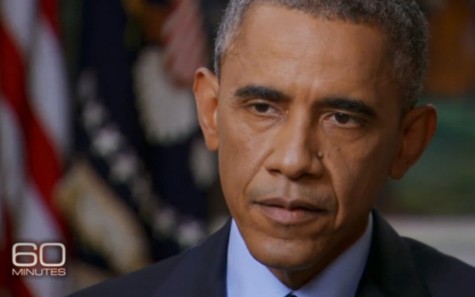LATEST
- Iran and IAEA Hold Nuclear Discussions in Tehran, Next Talks in April
- Republican Senators Put Pressure on Iran With Open Letter: “Nuclear Deal Won’t Last Beyond Obama’s Presidency”
Continuing his PR that the US is challenging Iran to make concessions in nuclear talks, President Obama said on Sunday that Washington is testing Tehran to see if it is “serious” about a deal.
Obama said in an interview with CBS News:
We have made progress in narrowing the gaps, but those gaps still exist.
And I would say that over the next month or so, we’re going to be able to determine whether or not their system is able to accept what would be an extraordinarily reasonable deal, if in fact, as they say, they are only interested in peaceful nuclear programs.
In a series of intense discussions since the start of the year, the US and the other 5+1 Powers (Britain, France, Germany, China, and Russia) have obtained Iranian concessions over uranium enrichment and the holding of its nuclear fuel. However, the Islamic Republic is insisting that US-led sanctions, especially on its oil and banking sectors, are removed within months of an agreement.
The two sides face a July 1 deadline for a comprehensive resolution. They resume negotiations on Sunday in Switzerland.
The head of Iran’s Atomic Energy Organization, Ali Akbar Salehi, said “technical issues” were resolved last week in his discussions with US Energy Secretary of State Ernest Moniz. However, Foreign Minister Mohammad Javad Zarif restated over the weekend that the sanctions must be lifted quickly, in contrast to reports that the US envisages a process taking “years”.
Obama gave no details in his Sunday interview, asserting:
If we are able to verify that in fact they are not developing weapons systems, then there’s a deal to be had. But that’s going to require them to accept the kind of verification and constraints on their program that so far, at least, they have not been willing to say yes to.
The President, who has estimated the chance of an agreement at less than 50%, concluded, “If there’s no deal, then we walk away.”
Iran and IAEA Hold Nuclear Discussions in Tehran, Next Talks in April
A five-member International Atomic Energy Agency team held discussions in Tehran on Monday, in continuing negotiations over implementation of a 2014 agreement for information and supervision of Iran’s nuclear program.
The IAEA says that the Islamic Republic has not fulfilled commitments to address questions on alleged research activities into explosives testing and neutron calculations.
Iran’s Ambassador to the IAEA, Reza Najafi, declared, “It was agreed that we proceed with our cooperation and also discussed ways to accelerate cooperation.” He said the next round of talks will be held in Tehran in April:
Republican Senators Put Pressure on Iran With Open Letter: “Nuclear Deal Won’t Last Beyond Obama’s Presidency”
Putting pressure on the Iranian regime, 47 Republican senators — almost half of the 100-member chamber — have written an open letter to Tehran, warning that any nuclear deal might not last beyond Barack Obama’s Presidency unless Congress agrees to it.
It has come to our attention while observing your nuclear negotiations with our government that you may not fully understand our constitutional system. Thus, we are writing to bring to your attention two features of our Constitution: the power to make binding international agreements and the different character of federal offices which you should seriously consider as negotiations progress….
We will consider any agreement regarding your nuclear-weapons program that is not approved by the Congress as nothing more than an executive agreement between President Obama and Ayatollah Khamenei. The next president could revoke such an executive agreement with the stroke of a pen and future Congresses could modify the terms of the agreement at any time.
We hope this letter enriches your knowledge of our constitutional system and promotes mutual understanding and clarity as nuclear negotiations progress.
Iranian Foreign Minister Mohammad Javad Zarif has quickly responded, “The world is not the United States, and the conduct of inter-state relations is governed by international law, and not by US domestic law.” He continued:
It is very interesting that while negotiations are still in progress and while no agreement has been reached, some political pressure groups are so afraid even of the prospect of an agreement that they resort to unconventional methods, unprecedented in diplomatic history. This indicates that like [Israeli Prime Minister Benjamin] Netanyahu, who considers peace as an existential threat, some are opposed to any agreement, regardless of its content.

